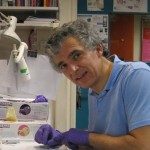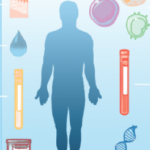Link to Pubmed [PMID] – 32581014
Link to DOI – 10.4049/immunohorizons.2000044
Immunohorizons 2020 06; 4(6): 363-381
Adenomatous polyposis coli (Apc) is a cell polarity regulator and a tumor suppressor associated with familial adenomatous polyposis and colorectal cancer. Apc involvement in T lymphocyte functions and antitumor immunity remains poorly understood. Investigating Apc-depleted human CD8 T cells and CD8 T cells from ApcMin/+ mutant mice, we found that Apc regulates actin and microtubule cytoskeleton remodeling at the immunological synapse, controlling synapse morphology and stability and lytic granule dynamics, including targeting and fusion at the synapse. Ultimately, Apc tunes cytotoxic T cell activity, leading to tumor cell killing. Furthermore, Apc modulates early TCR signaling and nuclear translocation of the NFAT transcription factor with mild consequences on the expression of some differentiation markers. In contrast, no differences in the production of effector cytokines were observed. These results, together with our previous findings on Apc function in regulatory T cells, indicate that Apc mutations may cause a dual damage, first unbalancing epithelial cell differentiation and growth driving epithelial neoplasms and, second, impairing T cell-mediated antitumor immunity at several levels.





